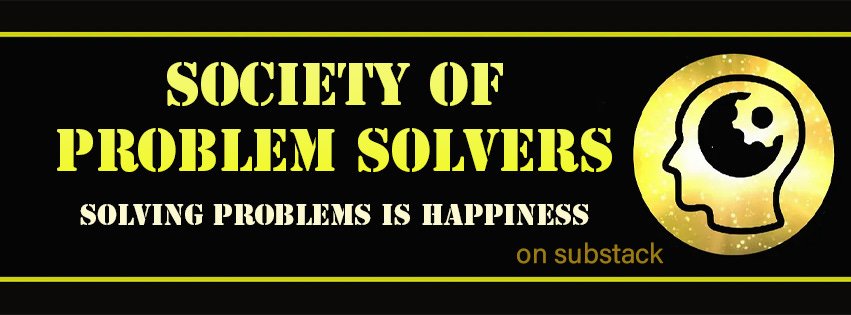Does the 1st Amendment Protect The Right To Digital Assembly?
If it does, then why don't we use it better?
“Error correction is the heart of morality for any society.” - David Deutsch
Objective truth is an illusion. Science is just our best explanation at the time. This is called fallibilism. Fallibilism is the philosophical principle that human knowledge is always subject to potential error, no matter how certain it may seem. It asserts that even the most well-established knowledge could be proven wrong in light of new evidence or better reasoning.
In essence, fallibilism recognizes that while we strive for objective truth, we can never be absolutely certain that our current understanding is final or infallible. For every problem we solve, new ones arise. Newton solved gravity, but there were problems. Einstein solved those, but then there are still new problems. Silencing speech through censorship is the opposite of the quest we are on to understand our reality with the best explanations.
Error correction is one of the main reasons America rose to greatness. The people that made the system (America is simply a system) created a society that was better than any previous society at fixing its own errors. From slavery to child labor, Americans were able to freely speak, assemble, and organize against their errors. This is what truly separated us from all other systems of governance that had ever existed.
Today, we stand firmly against online censorship. But what we must realize is that we should be organizing better, using the digital space to create new ways to assemble and correct errors. If individuals cannot freely communicate and gather in digital forums, it weakens our ability to organize in physical spaces as well, effectively silencing not just our voices but our capacity to act collectively. Online censorship is not just a free speech issue, but one that strikes at the heart of democratic participation and the ability of citizens to organize in pursuit of common goals.
Humanity is in trouble. Luckily, we are starting to realize it, and good things are happening. But there are things we can and should be using to fix our situation that we are not. These include making new transparent systems, decentralized systems, and problem solving collective intelligence systems, that will help us organize and maximize our rights to speech and assembly in ways that will keep us ahead of the enemies of civilization.
Thanks for reading!
All problems that do not defy the laws of physics are solvable.
Solving problems is happiness.
And humans solve problems better in high-trust groups.
#CollectiveIntelligence
Please join our think tank message board at SwarmAcademy.ai where we continue conversations like this one and where you will be able to participate in swarm intelligence problem solving with us on SWARM FORCE once it is finished being built.
For over 3 billion years on this planet there were only single-celled organisms. Then one day they somehow learned to work together and make complex multi-celled creatures . Right now we are like those single-celled organisms. Our next evolution is finding how to work together, better… (like we wrote about here).
#SwarmAcademy #NetworkState #LEADERLESS #ResultsMatterMost #DecentralizeEverything #DemandTransparency
COMMENTS ARE FOR EVERYONE AS A PLACE TO THINK-TANK SOLUTIONS. They will never be for paid-only subscribers and we will never charge a subscription.






In essence, the 1st amendment does in fact protect digital assembly and all aspects of expression; written posts, videos, art work and sharing information. All free of all restrictions, such as regional zones, subject matter, etc.
Online assembly and communication with others can and should be completely anonymous, that is without any digital ID, location info, or attribution to the carrier or account of the individuals involved.
Basically, the whole internet should go back to the completely unrestricted nature it had in the early days, like in the early 2000's.
People have a Natural Right to freely Associate with each other. This works best in a decentralized system, without authorities, because each of us are our own authority.
On another note, you started with the concept of No Objective Reality; in my view, you are quite right. We each experience a different vantage point of similar experiences, even if those are from the same event or object. Also, I typically say that we live in the world we create. Every minute is an opportunity to find ourselves in each scene. Those who have optimism, will experience the positive perception of things more often than the pessimistic alternative.
"The truth is a process."
- Alfred North Whitehead
We should assume that the 1st amendment grants us all freedom of communication, on paper and digital. And all freedom of assembly. The founders didn't have computers. But they did want us to have freedom.